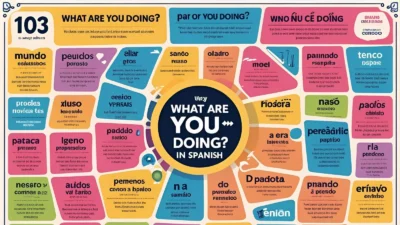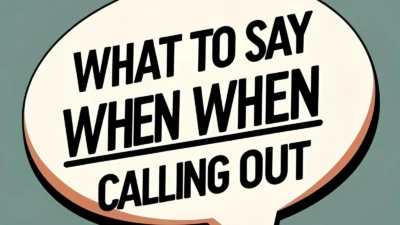Losing someone you love shatters your heart. But knowing what to say to someone who lost a loved one can feel just as hard. You’re scared to say the wrong thing, but silence feels just as painful. We’ve all been there—standing at the edge of grief, unsure how to comfort a friend, parent, coworker, or neighbor.
This guide is here to help. You’ll find real words, real comfort, and real-life ways to show up when someone you care about is hurting deeply. Whether it’s sudden or expected, grief shakes everything. But your words—your kindness—can help rebuild what’s broken.
Let’s walk through it together.
Sorry Generator
Key Takeaways
- Say less, mean more. Keep it simple, heartfelt, and genuine.
- Avoid cliches. “They’re in a better place” often hurts more than helps.
- Offer presence, not pressure. Being there matters more than saying the “right” thing.
- Use their loved one’s name. It keeps their memory alive.
- Follow their lead. Let them talk, cry, or sit in silence.
- Send small comforts. Texts, cards, food, or flowers mean a lot.
- Show up again later. Most people disappear after the funeral. Don’t.
- Be consistent. Check in weekly or monthly, even with just a heart emoji.
- Share memories. Stories bring smiles through tears.
- Respect their journey. Everyone grieves differently and in their own time.
What to Say and What Not to Say
Keyphrase Examples That Drive Results
When someone is grieving, words feel fragile. Still, some phrases truly help. Here are real examples of what to say to someone who lost a loved one:
Helpful Phrases:
- I’m so sorry for your loss.”
- “I’m here whenever you need to talk.”
- “There are no words, but I’m holding space for you.”
- “I remember when [name]…”
- “I love you. I’m with you.”
Avoid Saying:
- “Everything happens for a reason.”
- “At least they lived a long life.”
- “God needed another angel.”
- “I know exactly how you feel.”
- “You should be grateful for the time you had.”
Why it matters: Empathy builds connection. Cliches create distance. People want to feel seen, not silenced.
When Silence Is Golden
Supporting Without Words
Sometimes, your presence says everything. If you don’t know what to say to someone who lost a loved one, just be there. Sit with them. Hug them. Cry beside them. That moment of shared stillness often speaks louder than any sentence ever could.
Ideas for silent support:
- Bring their favorite coffee.
- Clean their kitchen.
- Send a “thinking of you” card.
- Light a candle in memory of their loved one.
Grief lives in quiet moments. Meet it there.
What If You’re Far Away?
Long-Distance Love in Times of Loss
You don’t have to be physically close to make an emotional impact. In fact, the right message, call, or gift can comfort someone across any distance. Use technology to reach hearts across the miles.
Comforting from afar:
- Text: “I woke up thinking of you and [name] today. Love you.”
- Video message with a memory
- Send flowers with a handwritten note
- Offer to Zoom or FaceTime whenever they’re ready
Insight: Grief doesn’t recognize geography. Neither does love.
Showing Up After the Funeral
When Everyone Else Goes Silent, You Don’t
Most support disappears after the funeral. That’s exactly when your comfort matters most. People don’t stop hurting after the flowers fade—they often start hurting more.
Ideas for post-funeral support:
- Set a reminder to check in weekly.
- Send a meal or snack box.
- Offer a weekend visit.
- Celebrate their loved one’s birthday with them.
- Remember important anniversaries.
Stay in their life. Grief is a long road, but no one should walk it alone.
Supporting Children and Teens
Simple Words for Young Hearts
If you’re wondering what to say to someone who lost a loved one and that someone is a child, gentle honesty is key. They don’t need perfect words. They need safety.
Say things like:
- “It’s okay to feel sad or mad.”
- “I miss them too.”
- “They loved you very much.”
- “I’m always here to talk or hug.”
Let them draw, write, or cry it out. Validate every emotion. Children grieve deeply, even if they don’t have the language for it.
Cultural Sensitivity in Grief
Respecting Traditions and Beliefs
In the U.S., grief looks different in every culture. If someone lost a loved one and follows specific customs, the kindest thing you can do is honor them.
Examples of respectful support:
- Learn about their mourning practices
- Bring appropriate food or gifts
- Attend services if invited
- Avoid judgment about rituals
Insight: Respect is the ultimate comfort.
Simple Acts of Comfort
Little Gestures, Big Love
Sometimes, a small act speaks volumes. When you’re not sure what to say to someone who lost a loved one, let your actions whisper love.
Everyday comfort ideas:
- Drop off a cozy blanket
- Send grief journals or books
- Deliver fresh groceries
- Help with errands
- Offer childcare or dog walking
Benefit: These gestures relieve pressure so they can breathe.
What to Say Months Later
Grief Doesn’t End After 30 Days
Keep showing up. Use reminders to check in on birthdays, holidays, or “just because.”
Phrases that still help months later:
- “I was thinking of [name] today.”
- “How are you really doing these days?”
- “Let’s go for a walk soon.”
Insight: Consistency heals more than you know.
Conclusion
Grief is a language of its own. And sometimes, the best thing you can do is simply say, “I’m here.” Whether it’s a few weeks or many months later, your presence still matters. When someone you love is hurting, don’t try to fix it. Just walk with them through it. Your compassion, your patience, and your kindness will be remembered long after the pain softens.
FAQ
What to say to someone who lost a loved one unexpectedly?
Say: “I’m so sorry this happened. I’m here for anything you need.”
What to say to someone who lost a loved one at work?
Say: “I’m thinking of you. Take all the time you need, and let me know how I can support you.”
What to say to someone who lost a loved one via text?
Say: “I just heard. I’m heartbroken for you. Please know I care and I’m here.”
What to say to someone who lost a loved one after illness?
Say: “I know how hard this journey was. Your love meant everything to them.”
What to say to someone who lost a loved one months ago?
Say: “I still think of them often. I’m always here if you need to talk.”
What to say to someone who lost a loved one during holidays?
Say: “I know the holidays are hard. I’m holding you in my heart this season.”
What to say to someone who lost a loved one in a tragic accident?
Say: “There are no words for this pain. I’m here to walk beside you.”
What to say to someone who lost a loved one and has children?
Say: “Let me help with the kids. I’m here for them—and for you.”from your heart. Say something.




